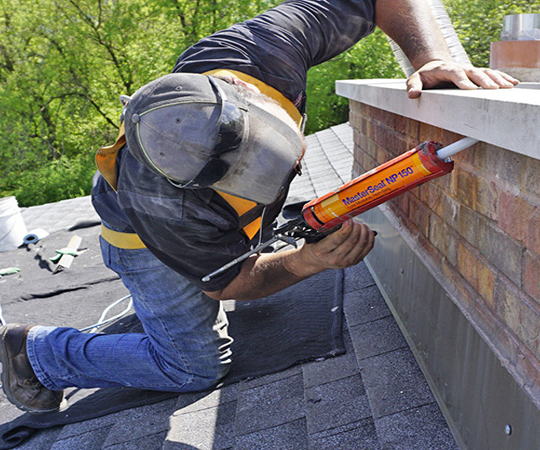The Purpose And Function Of A Chimney Cap
A chimney without a chimney cap is like a house with no roof. Your chimney is, of course, an exit route for combustion gases. But, without a chimney cap, your chimney is also an open invitation for various unwanted elements that get inside. If there is no chimney cap covering your flue pipe, experts recommend that you contact a qualified chimney sweep without delay. Your chimney should be inspected for signs of damage caused by the lack of protection, and the immediate installation of a chimney cap is needed. Read on to learn more about the purpose and function of a chimney cap.
Keep Out The Enemy
Moisture isa chimney’s worst enemy and keeping it out requires a chimney cap and a chimney structure in good working condition. Rain, snow, and sleet flow directly into a chimney flue that doesn’t have a protective chimney cap. The interior of your home can suffer water damage from the inpouring water, in addition to chimney components experiencing accelerated deterioration, including rusting.
Inside the flue, the mixture of water with acidic creosote deposits has the destructive effect of eating away at the chimney liner. When a chimney liner is damaged to even the smallest degree, repair or replacement is a must. A chimney liner must not have a breach because its function is to keep hazardous elements contained within the chimney
Water Proofing
Is Water Proofing A Chimney Necessary?
In most cases, a waterproofed chimney at some point in the past will not need re-doing for years. This is beneficial as it shows you may end up saving money while at the same time protecting your home. But when you have never gotten your chimney waterproofed before, you might want to consider doing so.
The benefits of waterproofing are vast and can save you money for years. Prevent future damage to the structure of your chimney. When water gets into your chimney, it can wreak havoc and can compromise even well-constructed brick from this wetness.
Cause Of Chimney Leakage
Below is a guide to why your chimney may be leaking:
Damaged Flashing
Flashing is a thin metal strip that you install around your chimney. When the flashing has damage, water can leak into the chimney. It can cause damage to its structure or interior elements. Remember that water leaking into your chimney can end up damaging the mortar joints. This is why you need to consider replacing such.
The flashing ensures that the connection between your chimney and roof is watertight. This will help keep you safe from any moisture entering into cracks or crevices where it might cause damage to equipment. Prevent fires in case of extreme weather conditions such as heavy snowfall. It can wreak havoc on your home with dry fuel sources nearby such as those made from wood.
Damaged Chimney Cap
A chimney cap is an important part of your chimney. It helps to keep weather conditions, debris, and animals out of it. Prevent moisture from entering the system. When your cap has damage in any way, water can easily get into the structure of your chimney.
Moisture that enters your chimney through a damaged cap will freeze and thaw as seasons change. This will cause the masonry to erode over time. You cannot see this damage from outside. But it can seriously compromise the overall stability of your chimney.
Missing Mortar
Mortar joints are crucial for your chimney. They hold the bricks together and help keep moisture from entering the system. When these joints are missing, water can get into your chimney and cause serious damage.
Water is a powerful force that can easily damage your home and potentially lead to an expensive repair! Moisture that the masonry absorbs could cause gaps or missing mortar. It will let water access the chimney structure where it is even more susceptible to further damages.
Missing mortar joints in between bricks are a frequent problem on brick chimneys. The porous material often erodes from water damage or cracks. It crumbles out through the accumulating wear incurred when freezing or thawing occurs over time.
Reasons To Waterproof Your Chimney?
Waterproofing helps to protect your chimney against the elements. It benefits you with:
Lower Risk of Fire Damage
A waterproofed chimney is less likely to catch fire than a non-waterproofed one. The masonry remains stable, and it can resist heat better than most other materials commonly used for this purpose.
Prevent future water problems where moisture could wreak havoc on your home. Water damage is a scenario nobody wants to deal with – especially in winter! Water leakage can lead to dangerous conditions.
Increase The Life-Span of Your Chimney
The benefits are worth it because it protects your chimney system from weathering, water, and rust damage.
Types Of Chimney Waterproofing
Professionals use two types of waterproofing often:
Internal Waterproofing Membrane
Install this membrane on the inside of the chimney. It is a watertight sealant that will help keep moisture out. The membrane will also prevent any soot or creosote from entering into the structure and damaging it.
External Waterproofing Coating
Apply this coating to the exterior of your chimney. It helps to repel water and protect it from weather damage. This type of waterproofing is more common because it is easier to apply and less invasive than internal waterproofing.
Both methods have benefits and drawbacks. But they both can extend the life of your chimney significantly.

